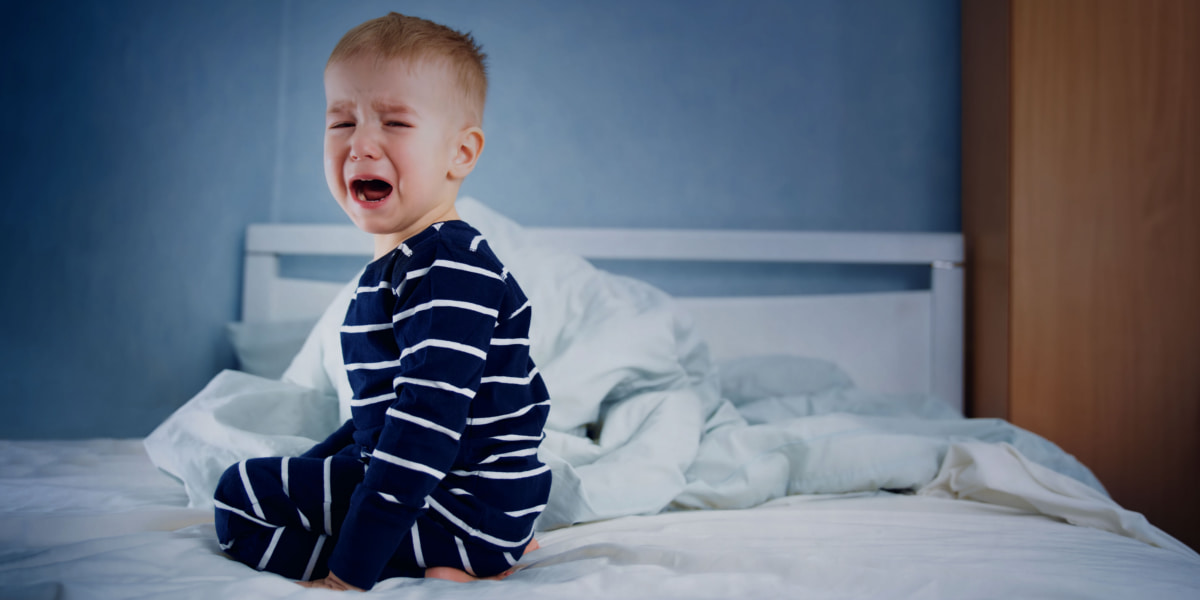As toddlers grow, many parents face the challenge of getting their child to sleep in their own bed. Sleep resistance in toddlers is a common issue, affecting both children’s development and parental well-being. Studies show that 40% of toddlers experience sleep-related issues, with many resisting bedtime due to separation anxiety, developmental transitions, or attachment needs. When toddlers refuse to sleep alone, it impacts not just their sleep patterns but also their emotional development and family dynamics.
The Science Behind Sleep Resistance in Toddlers
From a psychological perspective, toddlers are at a stage where their cognitive abilities are rapidly developing, leading to increased awareness of their surroundings. As they grow more aware of nighttime separation, anxiety often sets in, making them resistant to sleeping alone. Dr. Marc Weissbluth, a paediatric sleep expert, highlights that consistent sleep routines are vital for toddlers, yet nearly 50% of parents struggle to maintain such routines due to nighttime wake-ups or bed-sharing habits.
This resistance is also tied to the concept of object permanence, where toddlers now realise that even if a parent is out of sight, they still exist, leading to separation anxiety during the night. Their desire for comfort and safety can result in frequent nighttime visits to their parents’ rooms. While this is entirely normal, it can prolong sleep difficulties and affect how children develop autonomy.
How Themed Beds and Familiar Sleep Environments Can Help
Creating a sleep environment that fosters security and excitement can make a significant difference in how children respond to bedtime. Introducing themed beds, like the Kidsaw range from Apley Beds, can help transform bedtime from a daunting separation to an adventure. Themed beds allow children to feel a sense of ownership over their space, helping to reduce anxiety and resistance to sleeping alone. Familiar themes, such as princess castles or racing cars, can offer reassurance and excitement, helping children to associate bedtime with positivity rather than fear.
A bed that reflects a child’s personality and interests, coupled with a high-quality, supportive mattress like the Kids Waterproof Anti-Microbial Mattress, can also promote better sleep. A comfortable mattress not only ensures physical support but also reduces the chances of discomfort waking your child during the night. Knowing that their bed is a place of comfort can make it easier for them to stay settled through the night.
The Impact on Parents: What Sleep Deprivation Does to Mums and Dads
While toddler sleep issues are common, the toll it takes on parents—particularly mums—is often underestimated. Research shows that sleep deprivation can lead to emotional burnout, physical health issues, and increased stress levels. The National Sleep Foundation reports that parents of young children lose an average of 44 days of sleep during the first year alone. This sleep loss is exacerbated when toddlers resist sleeping independently.
For mothers especially, interrupted sleep can have a profound effect on both mental and physical health. Studies have shown that mothers who consistently lose sleep due to toddler wakefulness are more prone to anxiety, depression, and mood swings. Sleep deprivation also affects cognitive function, making it harder for parents to focus, complete daily tasks, or respond with patience to their children’s needs. Lack of sleep can even affect parental relationships, as both partners may experience frustration and tension when sleep is disrupted.
How Better Sleep for Toddlers Can Lead to Better Sleep for Parents
By creating a conducive sleep environment for toddlers, parents can reclaim their nights and improve their well-being. Themed beds help children feel secure and excited about their sleeping space, reducing the likelihood of nighttime disruptions. For example, a race car bed or a princess bed can spark joy and make children eager to sleep independently. Alongside these themed beds, a high-quality mattress such as the Kids Waterproof Anti-Microbial Mattress from Apley Beds ensures that your child is comfortable, supported, and free from allergens, which is critical for a restful night’s sleep.
Dr. Jodi Mindell, a sleep psychologist, emphasises the importance of routine and sleep independence for both child and parent well-being. When toddlers develop healthy sleep habits, parents report better mental health and reduced stress levels. In the long run, encouraging toddlers to sleep independently in their own space benefits the entire family, fostering not just physical health but emotional balance for everyone involved.
Conclusion: Making the Change for Better Nights
Toddler sleep resistance is a hurdle many parents face, but creating a positive, familiar, and comfortable sleep environment is key to overcoming this challenge. By introducing themed beds that capture your child’s imagination, combined with mattresses designed for ultimate comfort, parents can foster better sleep habits in their children. Not only does this promote healthier development for toddlers, but it also allows parents to reclaim their rest and well-being.
Explore the range of themed beds and high-quality children’s mattresses at Apley Beds to find the perfect sleep solution for your child’s needs and start enjoying restful nights for both you and your toddler.





